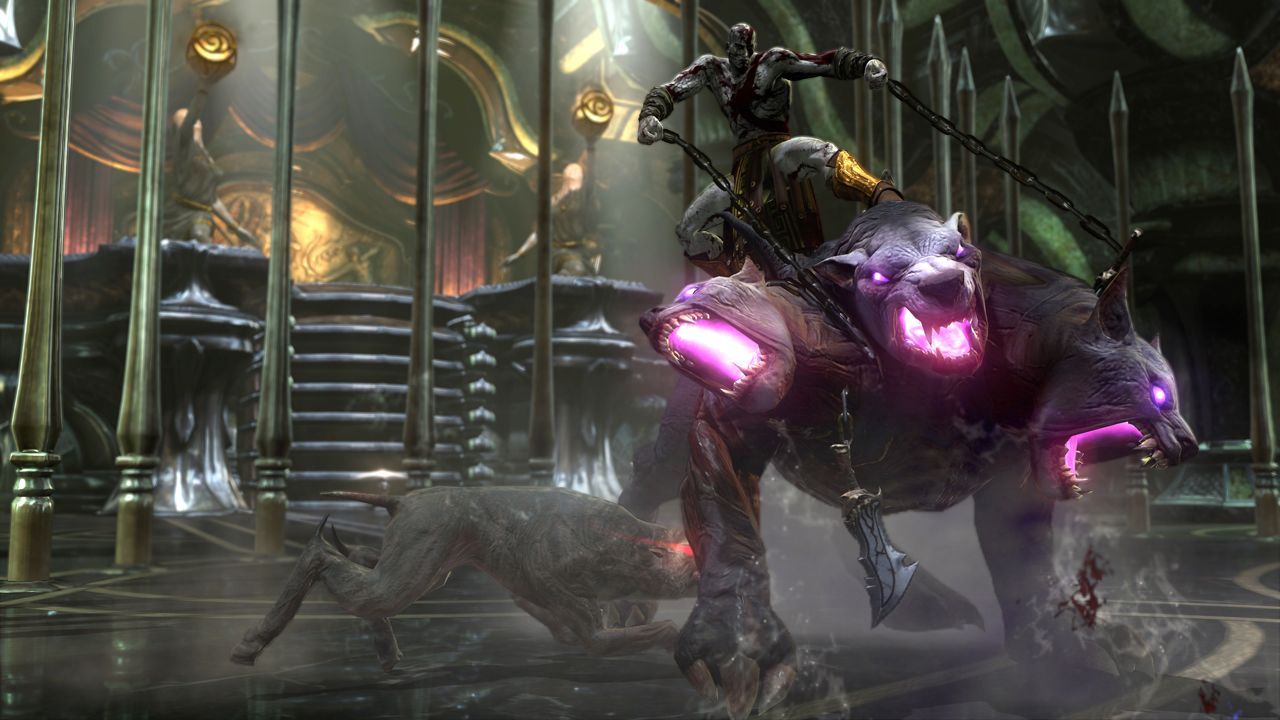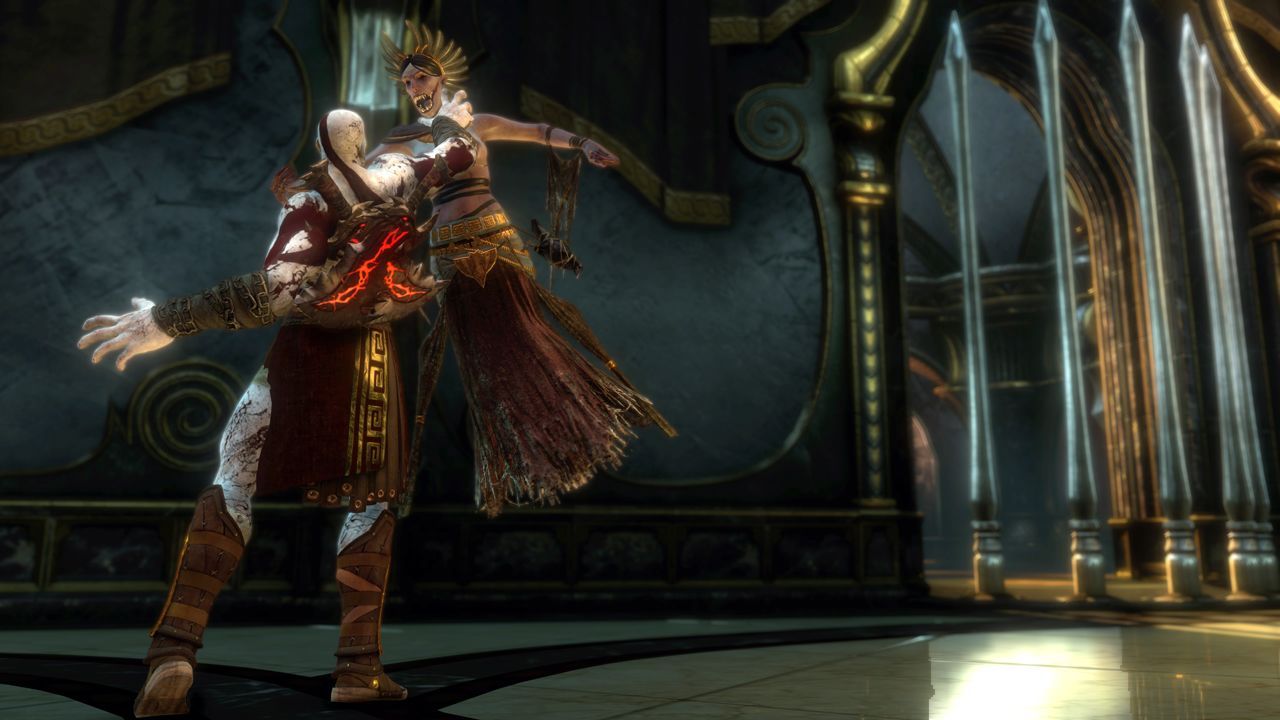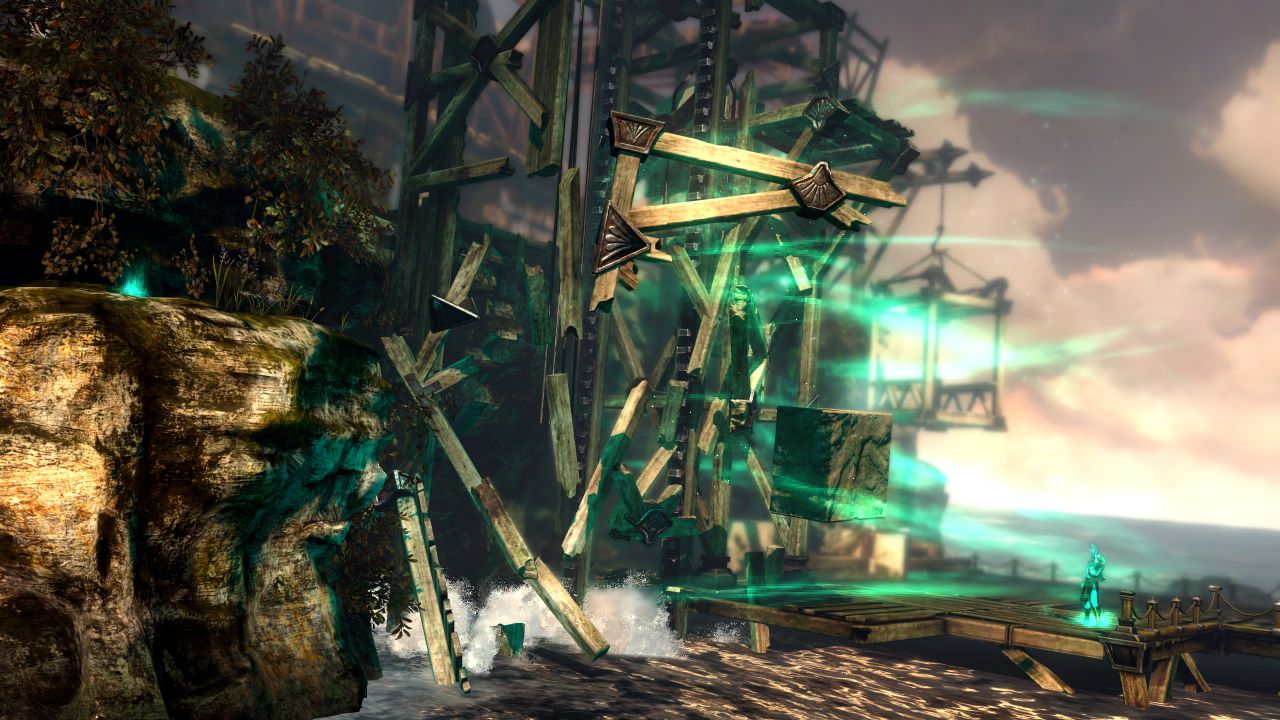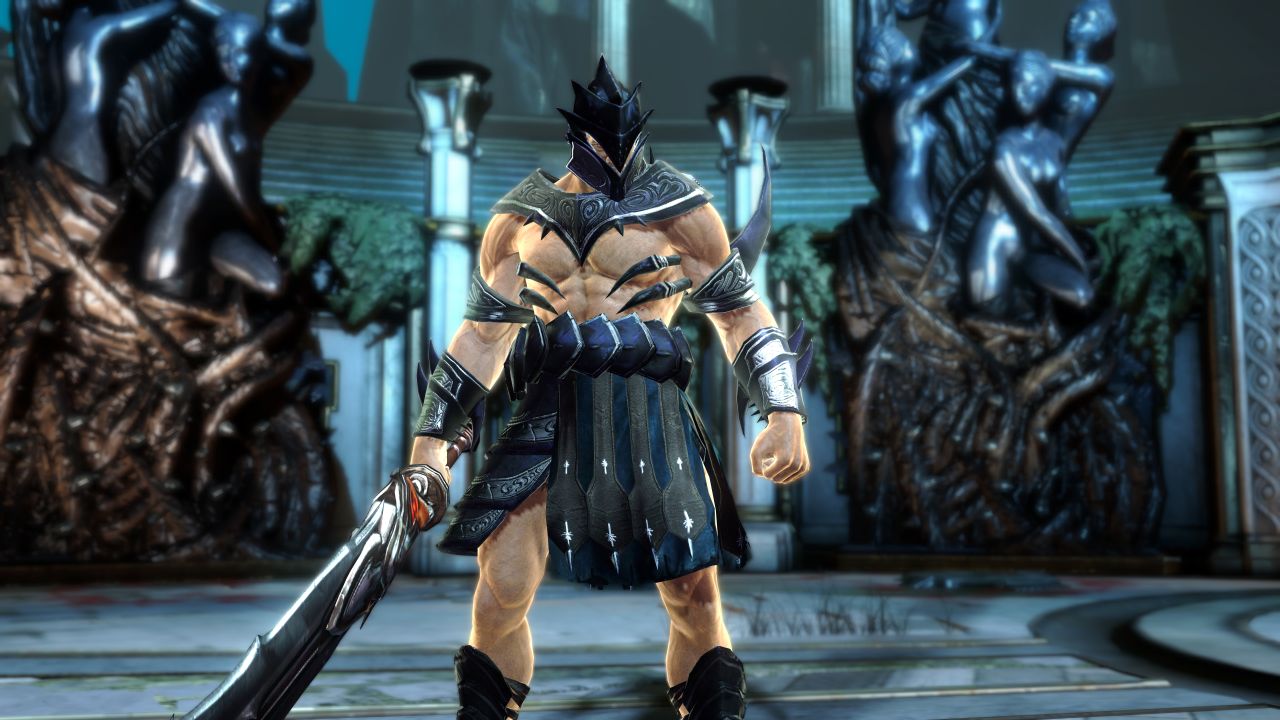God of War: Ascension Review
God of War: Ascension is the latest iteration of the hugely popular Sony third person action-adventure video game franchise, and probably the last full entry to grace the PlayStation 3. It’s only the second major entry of the series to appear on the current generation Sony machine, after God of War 3 in 2010. Ascension attempts to follow the origins of protagonist Kratos during his time before becoming the God of War in later games. Sadly, the story under delivers in most aspects and doesn’t really offer any thrilling plot twists or memorable encounters. While the gameplay remains as good as ever, some difficulty issues and increased focus on linear platforming take away from the experience. A series first multiplayer is full featured but chaotic and sometimes unbalanced. And if nothing else, it remains a visually impressive franchise.
The plot in Ascension focuses on the backstory of the world that reveals details on a long war between the Primordials, the beings who forged the Earth. The war spawned the Furies, the guardians of honor who punish those they deem guilty. The Furies allied with Ares in his secret quest to take down Mount Olympus, while also being the punishers of any mortals who broke their oaths to the Gods. Kratos was one such man, who refused to do Ares’ bidding and repay him for saving Kratos in battle. And thus, we find our angry hero confined by the Furies at the start of Ascension and witness his attempt to escape. What follows is actually a story told in retrospective, as Kratos continues his escape in present time while recalling events from weeks leading up to his capture. It makes for a bit of a confusing narrative as timelines get blurred as the events told in retrospective are lengthy and it’s easy to lose track of how it relates to the events of the present.

It’s also a fairly weak plot overall, containing few characters and mostly spent around just a handful of locations. There are not many memorable scenes or battles here, and while that may address the concerns from God of War 3 where players were able to take out huge foes with relative ease, some of the spectacle is lost from the experience. Fans who were hoping for a proper origins story going way back to Kratos’ days as a mortal will be disappointed, as this is a relatively isolated adventure with the hero already well on his way to becoming the God of War. It serves well to add to the lore of the franchise, but has hardly any talking points for Kratos as a character. Players are given little information about Kratos himself or his past – so even though it is a prequel, Ascension expects the audience to be familiar with the background story. And while some may argue that the plot isn’t exactly a top reason to play through God of War, it’s non-the-less below par compared to even God of War 3.
But at least the action is still top notch. Using his signature Blades of Chaos, Kratos sets out to defeat waves of enemies across various locations and rooms in his search to be free from Ares. Gone are the multiple weapons from God of War 3 which went underused anyway, instead replaced with elements that infuse your default Blades. Swapping attunements between the various gods gives our hero the ability to perform different magic attacks depending on the situation and also some passive abilities. It’s a revamp to the classic magic bar, going from an analog drain approach to a pre-set number of attacks. Each of the magic attunements can be levelled up by collecting red orbs from enemies and chests which grants extra abilities; you can also upgrade your health and magic bars by collecting the familiar feathers and eyes from chests.

But not all is well in the chaotic pirouette of bloody battle. Ascension seems to be one of the more difficult games in the entire series and can be frustrating at certain points. If you’ve hacked and slashed your way through the series so far, you might want to approach this prequel with a bit more care. The enemies you face seem to last a rather long time in battle, they produce less health orbs when taken down, and Kratos is more vulnerable than ever to being knocked over and into a stumbling animation. Using the full range of your abilities and blocking are keys to survival here, a goal that’s not usually associated with the franchise. Things go from bad to worse when you are facing off against more than a handful of enemies, culminating most notably at a level late in the game [which has since been promised to be patched due to its sheer difficulty]. Overall the game can be beaten with some patience, but the usual thrill of the chaotic and perhaps disorganized battles is lost because those are no longer viable.
Outside of combat, Ascension presents a heavy focus on a platforming. While the previous games were simple in their design of traversing the environment, this title aims towards showmanship with a more ledge-based, realistic climbing approach. The developers undoubtedly took some notes from the Uncharted series, as Kratos climbs bits of scenery and grabs onto various ledges more realistically, instead of just stabbing his Blades into a wall like before. It’s as simple as before though, with an added mechanic of sliding down slopes in the environment.
Puzzles also make up a notable portion of the game as expected. There is nothing particularly difficult here, but a few good head-scratchers definitely help break up the pace. A time-manipulation mechanic returns from GoW 3 in a simpler form, and you’ve also got time slowing mechanics and an ability to great a ghost of yourself to help solve puzzles where two simultaneous actions are required. All of these abilities can also be used in combat, further adding to your arsenal.

There are a few concerns with the campaign experience, however. The game seems motivated to throw cinematic set pieces at the player, and while those based on Quick time events work out fine, others require the player to keep full control of Kratos while the camera goes for a cinematic swing. It looks nice, but leads to many untimely deaths because you almost lose sight of the character and jump off in the wrong direction. Abovementioned set pieces also feel very strict on timing with little room for error, sometimes requiring a trial and error approach which further adds to the difficulty of the game overall. And finally, while retracing one’s steps is nothing new to the series, Ascension seems far too same-y, with extensive reuse of locations and that’s even without backtracking, down to the same chest placement and enemy spawns.
After completing the decently long but sometimes repetitive campaign, players can move on and experience what it’s like to play God of War in multiplayer for the first time ever. And in truth, it turns out to be a bit too chaotic to take seriously. While the design is top notch with the expected character customization, experience, and ability upgrade system of any modern online title, the actual gameplay feels underwhelming. All of the stages are designed well but spawning right near an enemy player is far too common. Actually fighting against others is often a roll of the dice, as everyone attempts to execute their most powerful attacks at first sight and things become a mess very quickly. Again, the design is in place with many viable support and defence abilities, but most players usually go for Ares or Hades skills because of their superior abilities. So while possible in theory and outfitted with most modern features, Ascension’s multiplayer still needs some balancing work and perhaps a re-evaluation of how viable the gameplay is in a competitive setting.

Being an exclusive franchise, God of War was always a showcase for the power of the PlayStation consoles, and Ascension is no different. Even after the great looking God of War 3, Ascension steps up to deliver some fantastic vista views and detailed textures, once again combined with violent and brutally detailed enemy takedowns. The static camera does its best to offer panoramic pans and swing around Kratos as he climbs some huge structures. Although only visible during cutscenes, characters are also quite detailed and showcase great attention to detail as we watch our hero’s body become scarred during the course of the game. But even in the presentation, Ascension isn’t perfect. The game’s sound design is a surprising step back, offering none of the adrenaline pumping orchestra previously heard in the series. Outside from boss fights, much of the game is in near dead silence, without much background music or ambient effects to set the atmosphere. Not to mention some audio glitches and a bit of lag that exist.
In the end, God of War: Ascension is a solid experience. It’s not up to par with the usual high standards that the franchise has been known to deliver, but as a standalone adventure you could do much worse. The story is mostly forgettable and won’t do much for fans of the series, but it chugs along at a nice pace and a good running time. Action is as spectacular as ever, but the game’s difficulty will require most players to scale down on the mayhem and focus on being a smart fighter rather than a powerful future God that brings devastation with every strike. Franchise first multiplayer features are well designed but the gameplay itself proves perhaps too chaotic for competitive play, with balancing issues hanging over the battlefield. The game looks as great as usual, but some sound design missteps take away from the atmosphere. Ascension is a good action game that’s worth checking out for fans of the genre, but fans of God of War who expect nothing but excellence should approach with subdued expectations.
